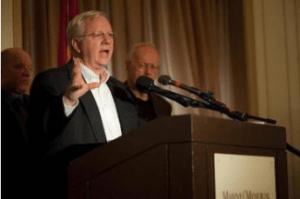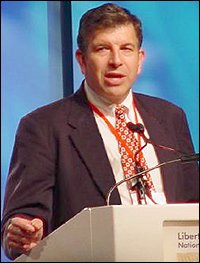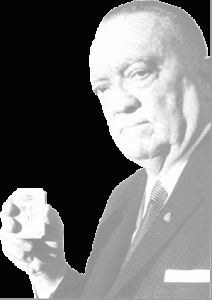Originally published at digwithin.net by Kevin Ryan on 12/6/14
Politicians and pundits often use terrorism to promote the interests of their financiers. This fear mongering goes hand in hand with attempts at war profiteering, population control, and the concentration of political power. What many are beginning to discover is that deception is integral to the success of the terrorism business. That is, the official accounts of terrorist events are typically fraught with omissions of fact and the concealment of clues that point to the involvement of more powerful people. The success of these false accounts reveals important aspects of human nature and points to ways in which thoughtful people can help to overcome such challenges.
There will always be a few people greedy enough to lie to others for personal gain, but we can live with this. What we can’t live with is large numbers of people lying to themselves because habitual self-deception is fatal. Long-term successful lies require motivated liars but also willing listeners and when millions or billions of citizens engage in such duplicity they make it difficult, if not impossible, for anyone to survive.
It’s common to see people blaming the government or the media for lying and taking advantage. That’s not surprising because, in general, politicians are highly evolved lying machines and the media is rewarded for telling the majority what they want to hear in ways that promote business interests. But what is really needed to overcome that pattern is to examine how lies told by authoritative sources are accepted so easily, making it possible for some to exploit this weakness.

All people lie to themselves. We lie to justify our past actions, to promote ourselves relative to others, and to protect our self-image. The psychological biases and defense mechanisms behind these lies have been studied and are well documented.
Here are a few of the known psychological biases.
- Self-serving bias: The tendency to take credit for success and blame external factors for failure
- Egocentricity bias: The tendency to exaggerate the importance of one’s role in past events
- False consensus bias: The tendency to believe that most people share one’s opinions and values
- Assumption of uniqueness: The tendency to overestimate one’s uniqueness
- Self-righteous bias: The tendency to regard oneself as having higher moral standards or greater moral consistency than others have
- In-group / out-group bias: The tendency to view members of groups to which one belongs in a more positive light than members of groups of which one does not belong
Examples of known defense mechanisms are as follows.
- Repression: Motivated amnesia
- Projection: Misattributing some aspect of oneself to someone else
- Disavowal (or denial): Disbelieving a true memory or perception
- Reaction-formation: Representing an attitude or emotion as its opposite
- Rationalization: Attributing mental states to false reasons
- Acting out: Precipitately acting to preempt conscious awareness
These are ubiquitous aspects of human psychology—not specific to any cultures or geographic regions. All people lie to themselves to some degree in these ways. Such lies are, without a doubt, largely activated by the unconscious mind but, as Freud noted, almost all of life is a matter of unconscious activity. The conscious mind, or the remembered present, is less involved in, and less capable of directing our lives than most people realize.
Humans developed this tendency to self-deceive through natural selection. Self-deception evolved as a way to better deceive others. Of course, deception of others was an evolutionary advantage whenever there was a limited availability of certain necessities, like food and mates. In response, detection of deception became an evolutionary advantage, as people learned to detect subtle physical clues in the deceiver. Furthermore, individuals who could successfully lie to themselves were naturally selected because they were less likely to give themselves away when lying to others. It seems that self-deception arose in conjunction with lie detection, with the two traits evolving in a sort of early arms race.
The evolution of language allowed for the skills of deception to overtake the skills of detection. The higher, linguistic consciousness facilitated more overlap between mental images due to the uncertainty, or play, in the meaning of terms. The power of language and semantics also gave way to a higher consciousness where internal concepts like the self-image originated. The imbalance between skills of self-deception and skills for detecting self-deception was enhanced by this increased level of uncertainty, and by the higher priority given to the self-image over other internal images.
We all strive to maintain a positive self-image and the increasing amount of time and energy devoted to this task is presenting risk to our real selves. In fact, we seem to defend our self-image as much or more than we defend our actual physical selves and this involves engaging in what Jean-Paul Sartre called “bad faith”. Since the self-image is not real, lying to protect it wastes energy and lowers our chances of being able to respond to any real challenges in our physical environment.
Politicians regularly co-opt our self-image by appealing to our sense of national identity and claiming to speak for it. When selling or promoting a policy, they wrap themselves in the flag. The biases and defense mechanisms noted above come into play when our personal identities are linked to our national identity. Using claims of an elusive, external threat, as with terrorism, government and media can manipulate these tendencies to frame and control the mindset of the average citizen. It all begins with self preservation, whether real or imagined.
In the United States the political system is carefully controlled to provide only two identities—Democrat and Republican. Once chosen, that simplisitic identity functions as a handle by which citizen viewpoints can be more easily controlled. Americans often don’t realize how little difference actually exists between the two parties. Moreover, politicans and media would have more difficulty manipulating a public that identified itself with more than two political viewpoints.
Similarly, each belief and opinion we adopt adds something to our self-image and creates something more to defend. Those who want war for their own purposes frequently utilize differences in religion to inflame the target populations and divert attention away from the real, usually resource-related, motivations. In more simple ways, our opinions on the subject of the day represent positions that, once made, pose risk to our identity and make it difficult for us to change our minds.
Our self-image must fit into an ever-changing mental environment or worldview. Today the rate of input from television and internet media forces people to make rapid adjustments to either their worldview or their self-image in order to maintain their mental “place in the world.” To complicate things, the media are now operated by only a few corporate interests and the internet is at increasing risk of becoming a closed, controlled-message system.
The mental environment of most people is changing and being manipulated very rapidly, with little predictability relative to the changes humanity has seen in the past. At the same time corporate interests are pursuing a power grab strategy that places the survival of the average person at a very low priority. Add to this a climactic evolutionary mental imbalance that indicates that we can no longer tell if we’re lying to ourselves, and we find ourselves in a dangerous predicament.
As thoughtful people work to monitor and reveal deception related to terrorism and other crimes, an effort to get to the root of these problems is needed. To overcome the challenges of deception there is an urgent need to understand and educate on human limitations, including self-deception and uncertainty in communications.


